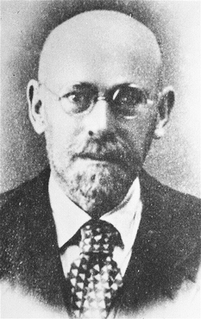A Quote by Edward Bulwer-Lytton, 1st Baron Lytton
Each man forms his duty according to his predominant characteristic; the stern require an avenging judge; the gentle, a forgiving father. Just so the pygmies declared that Jove himself was a pygmy.
Related Quotes
We are in the society of the teacher-judge, the doctor-judge, the educator-judge, the 'social-worker'-judge; it is on them that the universal reign of the normative is based; and each individual, wherever he may find himself, subjects to it his body, his gestures, his behavior, his aptitudes, his achievements.
Some are dinning in our ears that we Americans, and moderns generally, are intellectual dwarfs compared with the ancients, or eventhe Elizabethan men. But what is that to the purpose? A living dog is better than a dead lion. Shall a man go and hang himself because he belongs to the race of pygmies, and not be the biggest pygmy that he can? Let every one mind his own business, and endeavor to be what he was made.
The child--a skilled actor with a hundred masks: a different one for his mother, father, grandmother or grandfather, for a stern or lenient teacher, for the cook or maid, for his own friends, for the rich and poor. Naive and cunning, humble and haughty, gentle and vengeful, well behaved and willful, he disguises himself so well that he can lead us by the nose.
God never punishes his children in the sense of avenging justice. He chastens as a father does his child, but he never punishes his redeemed as a judge does a criminal. It is unjust to exact punishment from redeemed souls since Christ has been punished in their place. How shall the Lord punish twice for one offense?
Man's main task in life is to give birth to himself, to become what he potentially is. The most important product of his effort is his own personality. One can judge objectively to what extent a person has succeeded in his task, to what degree he has realized his potentialities. If he has failed in his task, one can recognize this failure and judge it for what it is - a moral failure.
When the father dies, he writes, the son becomes his own father and his own son. He looks at is son and sees himself in the face of the boy. He imagines what the boy sees when he looks at him and finds himself becoming his own father. Inexplicably, he is moved by this. It is not just the sight of the boy that moves him, not even the thought of standing inside his father, but what he sees in the boy of his own vanished past. It is a nostalgia for his own life that he feels, perhaps, a memory of his own boyhood as a son to his father.
I want everyone to keep the property that he has acquired for himself according to the principle: benefit to the community precedes benefit to the individual. But the state should retain supervision and each property owner should consider himself appointed by the state. It is his duty not to use his property against the interests of others among his own people. This is the crucial matter. The Third Reich will always retain its right to control the owners of property.
When I was a teenager, my father went bust. He could have declared himself bankrupt, but he was an honourable man and he insisted on paying back all his debts. That almost ruined the family. I was aware that my mother and father couldn't control things anymore. I guess I was afraid that we would end up on the street.
He who asks to receive his daily bread does not automatically receive it in its fullness as it is in itself: he receives it according to his own capacity as recipient. The Bread of Life (cf. Jn. 6:35) gives Himself in His love to all who ask, but not in the same way to all; for He gives Himself more fully to those who have performed great acts of righteousness, and in smaller measure to those who have not achieved so much. He gives Himself to each person according to that person's spiritual ability to receive Him.
The young man who addresses himself in stern earnest to organizing his life-his habits, his associations, his reading, his study, his work-stands far more chance of rising to a position affording him opportunity to exercise his organizing abilities than the fellow who dawdles along without chart or compass, without plan or purpose, without self-improvement and self-discipline.
We need each other to do things that we can't do for ourselves. If we are intimately connected with each other, we just give things to each other; if we don't know each other we find another way to handle it. If you think about it, each according to his or her abilities and each according to his or her needs is sort of the same thing as supply and demand.
Just because a man is dressed in a clean white robe does not mean his heart and hands are clean. Any man who neglects his conscience is a dangerous animal. Never judge a man by his image. Images can be bought or produced by any Hollywood producer, marketing team or fleet of stylists. Even kids know how to wear amazing costumes for Halloween. Always judge a man by the coloring of his heart and only his heart. Truth can be found in his record of actions, not intentions.





































